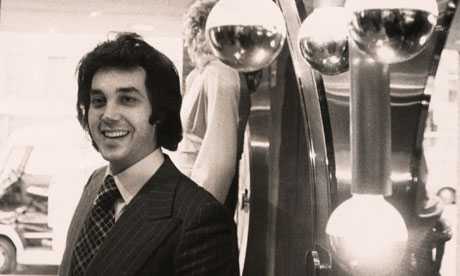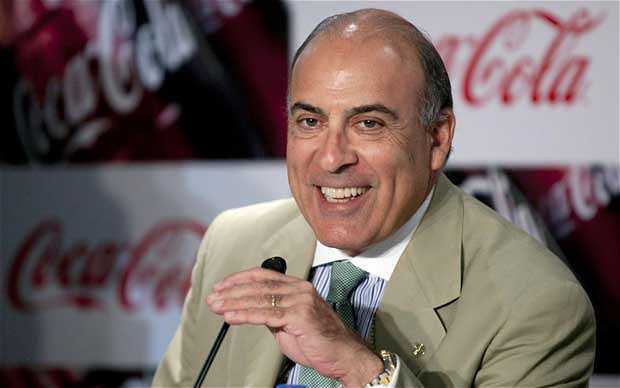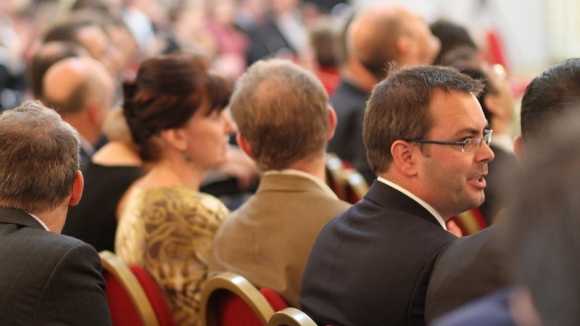 The British government’s threat to invade the Ecuadorean embassy in London and seize Julian Assange is of historic significance. David Cameron, the former PR man to a television industry huckster and arms salesman to sheikdoms, is well placed to dishonour international conventions that have protected Britons in places of upheaval. Just as Tony Blair’s invasion of Iraq led directly to the acts of terrorism in London on 7 July 2005, so Cameron and Foreign Secretary William Hague have compromised the safety of British representatives across the world.
The British government’s threat to invade the Ecuadorean embassy in London and seize Julian Assange is of historic significance. David Cameron, the former PR man to a television industry huckster and arms salesman to sheikdoms, is well placed to dishonour international conventions that have protected Britons in places of upheaval. Just as Tony Blair’s invasion of Iraq led directly to the acts of terrorism in London on 7 July 2005, so Cameron and Foreign Secretary William Hague have compromised the safety of British representatives across the world.
Threatening to abuse a law designed to expel murderers from foreign embassies, while defaming an innocent man as an “alleged criminal”, Hague has made a laughing stock of Britain across the world, though this view is mostly suppressed in Britain. The same brave newspapers and broadcasters that have supported Britain’s part in epic bloody crimes, from the genocide in Indonesia to the invasions of Iraq and Afghanistan, now attack the “human rights record” of Ecuador, whose real crime is to stand up to the bullies in London and Washington.
Unclubbable
It is as if the Olympics happy-clappery has been subverted overnight by an illuminating display of colonial thuggery. Witness the British army officer-cum-BBC reporter Mark Urban “interviewing” a braying Sir Christopher Meyer, Blair’s former apologist in Washington, outside the Ecuadorean embassy, the pair of them erupting with Blimpish indignation that the unclubbable Assange and the uncowed Rafael Correa should expose the western system of rapacious power. Similar affront is vivid in the pages of the Guardian, which has counselled Hague to be “patient” and that storming the embassy would be “more trouble than it is worth”. Assange was not a political refugee, the Guardian declared, because “neither Sweden nor the UK would in any case deport someone who might face torture or the death penalty”.
The irresponsibility of this statement matches the Guardian’s perfidious role in the whole Assange affair. The paper knows full well that documents released by WikiLeaks indicate that Sweden has consistently submitted to pressure from the United States in matters of civil rights. In December 2001, the Swedish government abruptly revoked the political refugee status of two Egyptians, Ahmed Agiza and Mohammed el-Zari, who were handed to a CIA kidnap squad at Stockholm airport and “rendered” to Egypt, where they were tortured. An investigation by the Swedish ombudsman for justice found that the government had “seriously violated” the two men’s human rights.
In a 2009 US embassy cable obtained by WikiLeaks, entitled “WikiLeaks puts neutrality in the Dustbin of History”, the Swedish elite’s vaunted reputation for neutrality is exposed as a sham. Another US cable reveals that “the extent of [Sweden’s military and intelligence] co-operation [with Nato] is not widely known” and unless kept secret “would open the government to domestic criticism”.
The Swedish foreign minister, Carl Bildt, played a notorious leading role in George W Bush’s Committee for the Liberation of Iraq and retains close ties to the Republican Party’s extreme right. According to the former Swedish director of public prosecutions Sven-Erik Alhem, Sweden’s decision to seek the extradition of Assange on allegations of sexual misconduct is “unreasonable and unprofessional, as well as unfair and disproportionate”. Having offered himself for questioning, Assange was given permission to leave Sweden for London where, again, he offered to be questioned. In May, in a final appeal judgment on the extradition, Britain’s Supreme Court introduced more farce by referring to non-existent “charges”.
Accompanying this has been a vituperative personal campaign against Assange. Much of it has emanated from the Guardian, which, like a spurned lover, has turned on its besieged former source, having hugely profited from WikiLeaks disclosures. With not a penny going to Assange or WikiLeaks, a Guardian book has led to a lucrative Hollywood movie deal. The authors, David Leigh and Luke Harding, gratuitously abuse Assange as a “damaged personality” and “callous”. They also reveal the secret password he had given the paper which was designed to protect a digital file containing the US embassy cables. On 20 August, Harding was outside the Ecuadorean embassy, gloating on his blog that “Scotland Yard may get the last laugh”. It is ironic, if entirely appropriate, that a Guardian editorial putting the paper’s latest boot into Assange bears an uncanny likeness to the Murdoch press’s predictable augmented bigotry on the same subject. How the glory of Leveson, Hackgate and honourable, independent journalism doth fade.
Not a fugitive
His tormentors make the point of Assange’s persecution. Charged with no crime, he is not a fugitive from justice. Swedish case documents, including the text messages of the women involved, demonstrate to any fair-minded person the absurdity of the sex allegations – allegations almost entirely promptly dismissed by the senior prosecutor in Stockholm, Eva Finne, before the intervention of a politician, Claes Borgström. At the pre-trial of Bradley Manning, a US army investigator confirmed that the FBI was secretly targeting the “founders, owners or managers of WikiLeaks” for espionage.
Four years ago, a barely noticed Pentagon document, leaked by WikiLeaks, described how WikiLeaks and Assange would be destroyed with a smear campaign leading to “criminal prosecution”. On 18 August, the Sydney Morning Herald disclosed, in a Freedom of Information release of official files, that the Australian government had repeatedly received confirmation that the US was conducting an “unprecedented” pursuit of Assange and had raised no objections. Among Ecuador’s reasons for granting asylum is Assange’s abandonment “by the state of which he is a citizen”. In 2010, an investigation by the Australian Federal Police found that Assange and WikiLeaks had committed no crime. His persecution is an assault on us all and on freedom.
New Statesman





